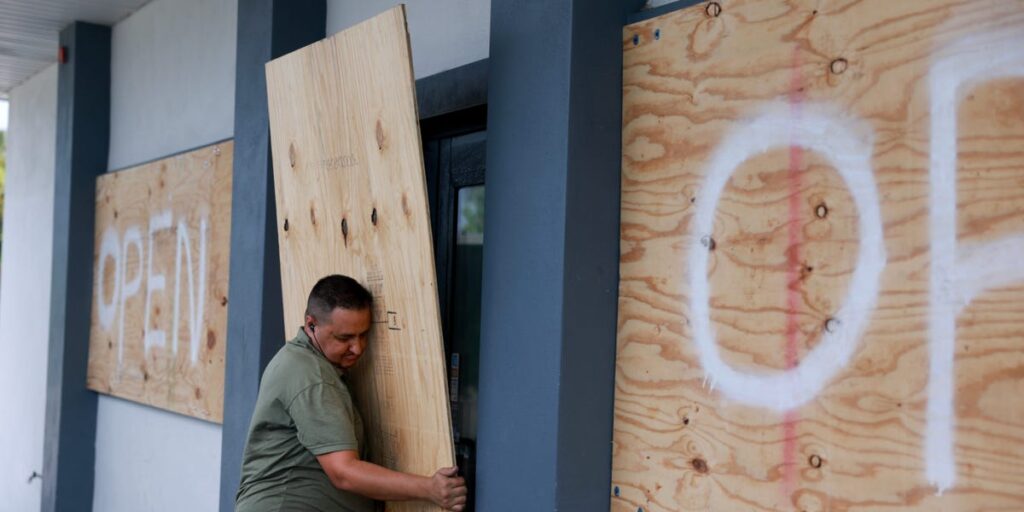- Hurricane Milton’s insured losses could cost between $30 billion and $50 billion, said analysts.
- Before the storm hit, analysts predicted damages of up to $100 billion.
- Total insured losses globally have exceeded $100 billion this year.
Hurricane Milton stormed Florida on Wednesday, leaving an estimated $30 billion to $50 billion of insured losses, according to analysts from Fitch Ratings in a Thursday note.
Milton made landfall as a Category 3 hurricane, causing widespread damage to homes, flooding streets, and leaving over 3 million homes without power in its immediate aftermath.
At least 10 were confirmed dead by US Homeland Security Secretary Alejandro Mayorkas at a Thursday White House press briefing.
Milton’s insured losses could range from $30 billion to $50 billion, according to Fitch, making it the largest since Hurricane Ian in 2022, which caused $60 billion in damages.
While the financial impact is significant, Florida insurers avoided a more harrowing scenario.
Before the storm hit, analysts at Morningstar DBRS told Reuters that they had estimated up to $100 billion in insured losses if the storm had directly hit the densely populated Tampa region.
This would have rivaled Hurricane Katrina’s cost in 2005, estimated at $86 billion in 2020 — the largest insured loss from a hurricane, per a 2020 Swiss RE report.
Before the storm, analysts from Jefferies placed potential losses at $175 billion in heavily populated regions like Tampa. Moody’s Analytics reported that $1.1 trillion in commercial property was at risk of wind damage.
Milton had weakened to a Category 1 hurricane by Thursday morning, according to the National Hurricane Center. Gov. Ron DeSantis said in a Thursday news conference that the state had avoided a “worst-case scenario.”
While final losses have yet to be determined, Fitch analysts said that the “demand surge” often following major storms will be a key factor affecting the final cost of insured losses.
When several hurricanes strike within a short period, as with Helene and Milton, the demand for labor and materials for repairs and rebuilding skyrockets, which could increase the total insured losses by at least 20%, per Fitch.
According to a September report by Moody’s Analytics, Hurricane Helene’s insured losses were between $20 billion and $34 billion.
Global reinsurers will likely see a spike in claims payouts, since the hurricanes came just weeks apart, per a Wednesday note from S&P Global.
Florida’s already fragile homeowners’ insurance market could weaken further from consecutive battering by Helene and Milton. Fitch analysts said local insurers might face insufficient reinsurance coverage to handle the losses and drive up premium rates.
While most insurers could cover damages from a typical major storm, anything beyond that could rapidly drain their reserves, especially if more storms strike this season, Fitch analysts wrote.
Global insured losses from natural catastrophes in 2024 have already exceeded $100 billion, per Fitch. This far exceeds the 10-year average of $37 billion. Storms in the US accounted for 70% of insured losses, according to an August report by Swiss RE Institute.
Analysts from Fitch did not respond to Business Insider’s requests for comments sent outside business hours.
Read the full article here


